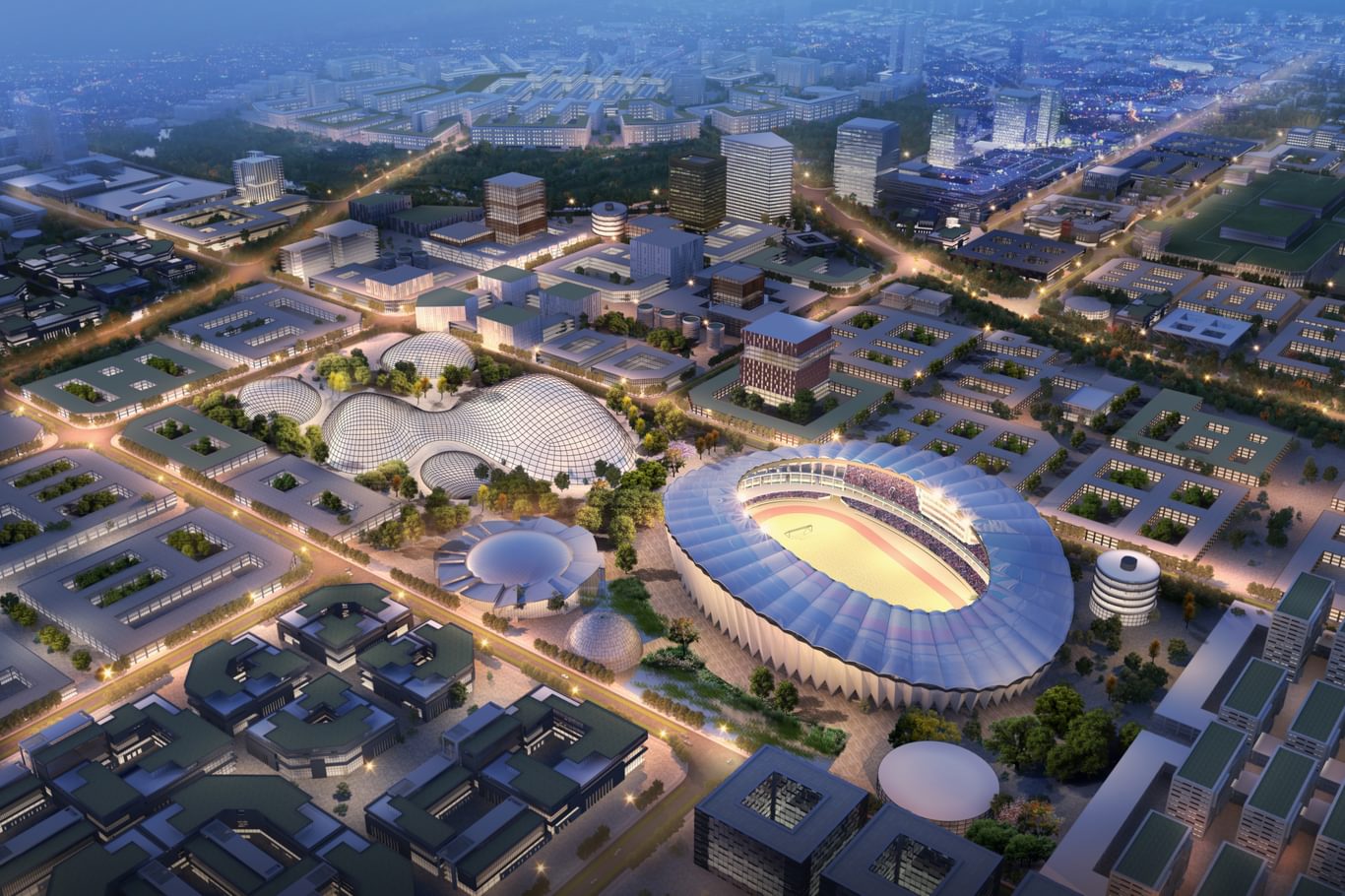
Design concept for Xiong’an Rongdong, China
Chapman Taylor’s Shanghai studio has created an urban design concept for an integrated and harmonious new town district.
Rongdong district is located in the middle of the Beijing-Tianjin-Hebei circle and plays a current role as the transfer hub between Beijing and neighbouring cities. Its vicinity to cities of great significance means that there is great potential for future development and integration.
Rondong district will be a harmonious, green smart city development that is an enjoyable place in which to work and live, with extensive open spaces for the public to enjoy. Our design will fully integrate with the natural environment and several heritage sites will be carefully incorporated into the masterplan.
We will create an ecological and smart ‘slow transport’ system, incorporating pedestrian-friendly self-sustaining urban quarters which include many community activities.
The dense transportation system in the surroundings of Rongdong district represents one of its main opportunities. There are three international and two national airports and two railway stations in the proximity of the site, with additional bus routes serving the local infrastructure. There are four highways and one railway line which connect Rongdong district with several key cities in the Beijing-Tianjin-Hebei circle.
Rongdong district is located in the middle of the Beijing-Tianjin-Hebei circle and plays a current role as the transfer hub between Beijing and neighbouring cities. Its vicinity to cities of great significance means that there is great potential for future development and integration.
Rondong district will be a harmonious, green smart city development that is an enjoyable place in which to work and live, with extensive open spaces for the public to enjoy. Our design will fully integrate with the natural environment and several heritage sites will be carefully incorporated into the masterplan.
A variety of green spaces are proposed that serve useful functions within the landscape strategy. Site levels are employed to assist with water management and drainage, focusing on the central park, and streets are lined with soft landscaping to act as 'rain gardens'. The forest park provides shelter and site definition on the perimeter of the site. Spine parks link the urban quarters with the central park and help to create a close connection between the city and nature. A garden city boulevard connects the urban areas, which are full of public and private courtyard gardens in a variety of styles, along with roof gardens and allotments used to grow food for a sustainable future. Finally, city squares become urban meeting spaces for sports, culture and social and commercial uses.
We will create an ecological and smart ‘slow transport’ system, incorporating pedestrian-friendly self-sustaining urban quarters which include many community activities.
The dense transportation system in the surroundings of Rongdong district represents one of its main opportunities. There are three international and two national airports and two railway stations in the proximity of the site, with additional bus routes serving the local infrastructure. There are four highways and one railway line which connect Rongdong district with several key cities in the Beijing-Tianjin-Hebei circle.



